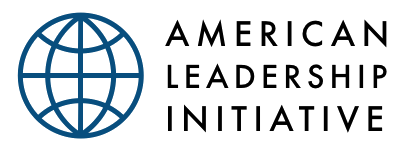SCOTUS Decision Profoundly Damages U.S. Global Leadership
/Fifty-nine countries have expanded access to abortion since 1980. Last week, the U.S. became one of the 11 countries that have restricted access in the past three decades, joining a club that includes Russia, Iran, North Korea and Nicaragua. In their dissenting opinion, Justices Breyer, Sotomayor, and Kagan wrote that the U.S. “will become an international outlier after today.” This decision was especially jarring and undemocratic given that about 70% of the American public believe that decisions about abortion should be between a woman and her doctor, rather than regulated by the government.
While the decision will have serious consequences domestically, it’s impact will reverberate globally. It is yet one more chink in America’s standing as a moral authority, compromising its global work to advance human rights and democracy.
The Supreme Court’s decision on abortion continues the America’s backward slide on democracy and rule of law. The World Justice Project’s Rule of Law Index for 2021, gives the U.S. a rank of 27, slipping out of the top 20 for the second year in a row. The greatest decline was in its index of fundamental rights, where the U.S. was ranked 42nd, between Croatia and Namibia, well behind virtually all the developing world.
The overturning of Roe vs Wade, together with America’s rising inequality, racism, and escalating gun violence, seriously undermine the America’s moral authority as a global leader. These steps backward in American rights are antithetical to the American Leadership Initiative’s core mission of advancing American global leadership, including supporting democracy, the rule of law and human rights.
In 1995, Hilary Clinton’s speech in Beijing, proclaiming that “women’s rights are human rights,” ignited a fire in women around the world fighting for their rights. U.S. leadership has played an important role in promoting global women’s rights and health. The United States Agency for International Development is the single largest bilateral donor to global family planning and reproductive health, with a budget of $607 million in 2022. These funds have helped ensure that girls around the world are more likely to survive childbirth, less likely to get pushed into childhood marriage, more likely to attend school, and lead healthier, longer, lives than they were thirty years ago.
The ability for a woman to decide if and when she would like to bear a child is a fundamental part of this advancement. Unintended pregnancies and abortions are more common among poor women and women of color, both in the U.S. and around the world. Numerous studies have shown that safe and legal access to abortion services increase women’s education, labor force participation, occupational prestige, and lifetime earnings. Similarly, when women are denied an abortion, their existing children do worse both in achieving developmental milestones, and are more likely to be living in homes where there's not enough money to pay for food, housing, and transportation.
Abortions continue to take place at similar rates, whether it is legal or not. In countries where abortion is criminalized, like Central America, the result is devastating. In El Salvador, abortion is banned in all cases and prison sentences can be issued if a woman is caught. She can even go to prison for having a miscarriage or a stillbirth.
Despite the severity of laws throughout the region, an estimated 6.5 million abortions take place every year, and at least 10 per cent of maternal deaths can be directly attributed to unsafe abortion.
The SCOTUS decision and setback for women’s rights in the United States will have profound and devastating impacts for women globally, who have looked to the U.S. as a leader and aspired to reach its standards.
The decision to overturn Roe v. Wade has sparked protests globally of women who carry signs condemning the decision. Leaders around the world have looked at the decision with dismay. Michelle Bachelet, UN High Commissioner for Human Rights called the ruling a "major setback," followed by Amnesty International Secretary, General Agnès Callamard, who stated that overturning Roe could damage global perception of the US and “set a terrible example that other governments and anti-rights groups could seize upon around the world.”
First Minister of Scotland Nicola Sturgeon said that “this decision will embolden anti-abortion & anti-women forces in other countries too.” Israel’s Health Minister responded by loosening the country’s access to abortion and saying that the SCOTUS decision “sets the leader of the free and liberal world a hundred years back.”
The loss of U.S. moral authority to advocate on women’s rights and human rights more broadly, will have grave consequences for millions of women and people around the world. Moreover, the SCOTUS decision will embolden anti-democratic regimes who look suppress women’s rights and human rights. The swift response of many companies committing to cover travel expenses for employees in states where abortion is banned, the sharp criticisms of global leaders, combined with the peaceful protests of women in the U.S. and globally, gives us hope, and provide global leadership, and hopefully a pathway, to restoring democracy.



